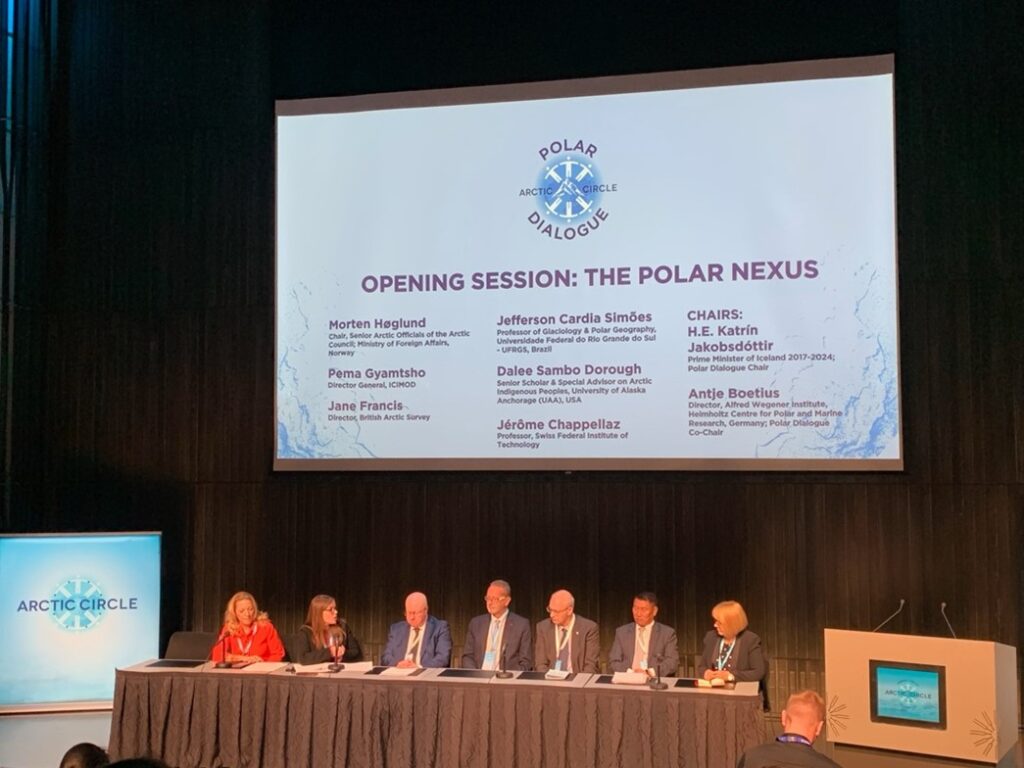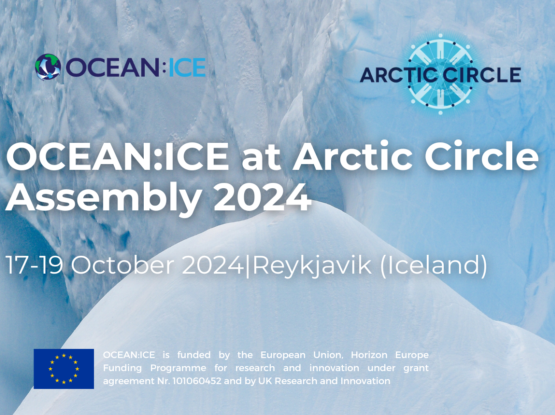17-19 October 2024, Reykjavik (Iceland)
With a suitcase full of fancier clothes, I travelled to Iceland for my first Arctic Circle Assembly (ACA). The ACA is not our typical scientific conference, but rather a meeting place for inspiring talks, discussions, and true interactions between stakeholders, policy makers, entrepreneurs, and scientists, working in and with the Arctic. In Reykjavik’s Harpa Concert Hall, panels debated around topics such as the upcoming International Polar Year, the impact of the geopolitics (Russia, China), the involvement and voices of indigenous people, and even geoengineering. Behind all discussions was a clear notion that the Arctic (and Antarctic) cryosphere is changing, with a clear sense of urgency to deal with the ongoing reductions in sea ice, land ice and permafrost.
This year the ACA launched a new initiative called the “Polar Dialogue”. Chaired by the former Prime Minister of Iceland Katrín Jakobsdóttir and Director of AWI Antje Boetius, throughout the ACA a selected group of participants discussed all kinds of Polar topics in a more intimate setting. The Polar Dialogue originated from the Paris Polar Summit held in November 2023 on the initiative of the President of France Emmanual Macron, and the key focus was on cryosphere science and research cooperation through constructive dialogue.
In a typical scientific conference, we would have scientific talks and posters. In contrast, during the ACA we scientists disseminate our knowledge by actively interacting in the dialogues (such as the Polar Dialogue), and through networking during and in between the sessions. OCEAN:ICE was furthermore represented through the European Polar Board (EPB) and the EU Polar Cluster networks, both on stage and with a stand.
Even though I sometimes felt like a PhD student attending her first EGU conference, I can recommend taking the time and participating in a policy-relevant meeting such as the ACA.

The author of the article - Petra Langebroek (NORCE and Bjerknes Centre for Climate Change)


